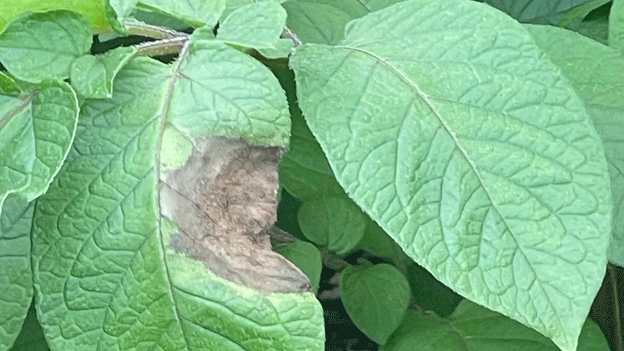Genetic Analysis: The Andes as a Pathogen’s Cradle
A recent genetic study has revealed that the source of the late blight pathogen that caused the devastating potato blight in Ireland is in the South American Andes, and not Mexico as previously thought. The scientists compared the whole genome data of the blight with the genomes of closely related species found exclusively in the Andean region. The results showed that the Andes were a “hotspot” for speciation, where the pathogen diverged into several lineages.
Evolution of the pathogen and its migration flows
The study demonstrates that late blight spread from South America to North America, and then to Europe, where it caused a catastrophic epidemic in the 19th century. Analysis of genetic data allowed us to trace the evolutionary and migration processes, revealing that historically, migrations from the Andes to Mexico were much more important than the reverse process. This picture of evolutionary development emphasizes the importance of taking into account the genetic heritage when searching for resistant potato varieties.
Interaction with wild varieties and climate challenges
One of the key aspects of the study was a comparison with wild potato varieties that evolved in the Andes. These varieties have developed defense mechanisms against late blight over thousands of years. However, modern climate change, leading to droughts in the high Andes, may threaten the preservation of these unique genetic reserves. The potential loss of wild varieties will deprive farmers of an important tool for developing new, disease-resistant potato varieties.
Prospects for the modern agricultural sector
The results of this study open up new horizons for domestic farmers and breeding specialists. Revision of traditional approaches to the search for resistant varieties and an emphasis on studying the genetic diversity of wild potatoes can become key measures in the fight against late blight. Current trends in global trade, leading to the mixing of pathogen populations, require the development of new strategies that can ensure food security and competitiveness of domestic production.
Analytical view: lessons from the past for the future
Publications of the POTATOES NEWS portal have repeatedly drawn attention to the importance of genetic research in the fight against potato diseases. Current results confirm that understanding the evolutionary processes of pathogens allows not only to restore the historical picture, but also to develop effective measures to increase the resistance of agricultural crops. Integration of genetic data with practical experience of domestic specialists opens up new opportunities for development of processing industry and export.
What steps, in your opinion, will help to preserve genetic diversity of wild potatoes and ensure sustainability of domestic agriculture?







